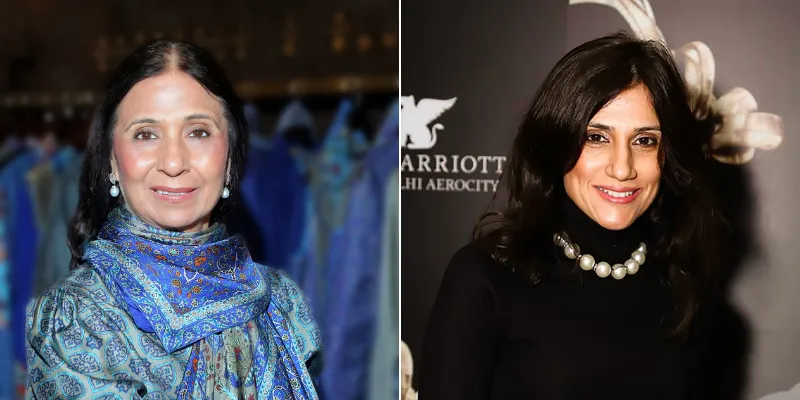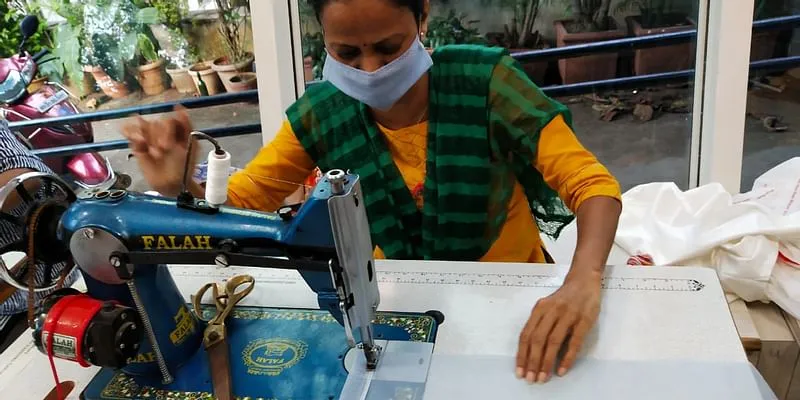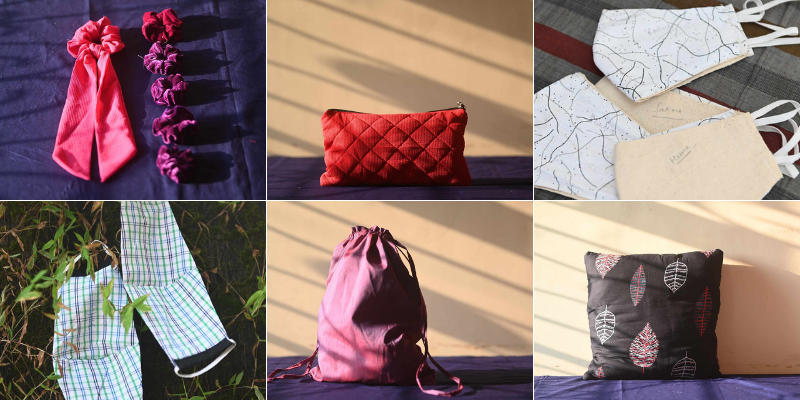Sustainably stylish: this initiative can help reduce fashion wastes while fighting the pandemic
The RE.purposed initiative supported by fashion designers Leena Singh and Rina Dhaka in association with two women-centred NGOs aims to repurpose fashion wastes into useful articles like masks, bedsheets, pillow covers, etc.
Being fashion-forward in the current times means staying up to date with the latest trends, but this also leads to the growth of excessive fashion wastes.
As a matter of fact, the fashion industry creates an estimated 92 million tons of textile waste each year. Every second, the equivalent of one garbage truck of textiles goes into landfill or is burned, globally.
But, on the sunny side, there is a growing demand for sustainable clothing produced through non-polluting raw materials and zero-waste production facilities. In fact, the pandemic has accelerated this demand while also supporting the livelihood of local communities.
In order to aid that concept, a sustainable fashion COVID-19 response campaign called ‘RE-Think. Act. Create’ launched the ‘RE.purposed’ initiative. This initiative drives awareness among consumers and fashion stakeholders about social equity, slow fashion, the rich Indian textile heritage, and fashion choices’ impact on climate.

Leena Singh and Rina Dhaka
To support and act upon the cause, veteran fashion designers Leena Singh of Ashima-Leena, and Rina Dhaka have moved to encourage sustainability in the fashion industry, and are leading this initiative in association with women-centred NGOs, Srujna and Myna Mahila Foundation.
“The Government of India had announced it's ‘Vocal for Local' initiative encouraging people to buy local products, thereby supporting local communities. The RE.purposed initiative ties in with the government's vision of boosting support for local communities and their craft. This initiative is a perfect blend of tradition and craft,” Rina Dhaka tells SocialStory.
Sustainability in fashion
In 2018, Leena Singh hosted a fashion show that showcased a reversible shawl, embracing the other side of the artwork. While most people wear their shawls pretty-side-up, the show only featured the other side of the shawl, highlighting the efforts of the weavers who worked on the designs.
“I’ve always believed that it isn’t only the designer who needs to be recognised but also the unseen hands whose work brought the design together,” expresses Leena. “These unseen hands are the real heroes for me, so any initiative that can make their lives better, especially in such difficult times, I’m all in!”
Leena believes that it is better to give the women workers wings to fly, rather than support them with food and clothes, and make them seem underprivileged. So when it comes to sustainable fashions, she wants to ensure that the women are skilled with the basics of stitching and embroidery so that they have the freedom to be on their own.

Some of the repurposed products
When making new clothes, a lot of excess fabric that remains is most often disposed of, and most of it ultimately ends up in landfills. However, this waste will not be found in the landfills, thanks to the efforts of implementing sustainable fashion.
The excess scraps of fabric are used to create an entirely new item. For example, the scraps from making different clothing can be stitched together to produce a unique, one-of-a-kind piece altogether – jackets, bedsheets, pillow covers, and curtains.
“Many people were doing this extensive work putting these tiny pieces together, but you can imagine the magic we created with this kind of thinking,” says Leena. “We can’t really call this fabric waste anymore, since a lot can be created with whatever remains,” she adds.
The RE.purposed initiative is a programme that builds on this kind of thinking and encourages more people to make the best use of remnants. Moreover, during these pandemic times, the designers are providing fabrics as part of the initiative and encouraging women artisans to manufacture and distribute masks, another need of the hour. The fabrics are also used to make items like jewellery.
“Sustainability is not just about the finished product but one should also consider the complete process. For fashion, we should be ethical about how we work. Continuing to sustain a craft or a design language that handholds that craft is as important to keeping sustainability alive in today's environment,” says Rina.
Helping artisans find a livelihood
Mumbai-based Srujna is a non-profit that empowers underprivileged women in India with active livelihoods. It provides the skills and knowledge required to make them independent, earning members of their families.
“COVID-19 has taught us that more than charity, getting these women back on their feet is a lot more important. Moreover, enabling this sustainable livelihood can go a long way in protecting the environment,” says Jyotika Bhatia, Executive Trustee – Resources and Impact, Srujna.

One of the artisans repurposing fabric
Ever since the pandemic, the women artisans and Srujna have been making masks, which are distributed to the poor who cannot afford masks. So far, it has produced more than 50,000 masks. It hopes to extend this campaign until Christmas and reach at least one lakh people.
Similarly, another NGO based in Mumbai, Myna Mahila Foundation, is also working to help women find a livelihood and remove the restraints that are preventing this. In these unprecedented times, it has been helping its artisans be a part of the fight against the pandemic while helping them with their livelihoods.
“Before this initiative, we already had our ‘Myna Boutique,’ where we collected used clothes and turn them into pouches for our pads, stationery, and laptop bags, and sell them online. The proceeds from these sales would help our women who handcrafted these products,” says Iman Syed, Communications Associate, Myna Mahila Foundation.
Through RE.purposed, it is making more of its artisans aware of sustainable fashion, fashion wastes, and their role in the entirety.
Creating a meaningful impact
The women working with both these NGOs are delighted to be part of this initiative.
Priya Pawar, 25, used to work as a tailor, but her income was severely impacted due to the pandemic. However, she now finds herself making masks and potlis (covering bags) with old sarees.
“Because of the lockdown, there is a shortage of work and also income. This initiative provides us with the opportunity to earn, and there is no tension of procuring the raw material as well. We are grateful to Srujna for such support during difficult times,” says Priya.
Similarly, Sunita Yadav, 36, is a housewife working from home, involved in minor tailoring jobs. At Myna Mahila Foundation, she has been making pads and face masks, but wants to make more products with its in-house training programme and contribute more towards the initiative.
“I’m part of the workforce that learnt to make sanitary products and received training in tailoring, and this has enabled me to use these skills extensively for stitching face masks and bags,” she says.
COVID-19 impact
“Sustenance in fashion can only be brought if we make conscious efforts to empower people who need it the most, that is, the Indian artisans and local communities. During COVID-19 pandemic, consumers began demanding social change in the fashion industry by seeking more sustainable brands,” says Rina.
“The adoption of mindful fashion choices and increased inclination towards slow fashion that is locally-produced will make the Indian fashion industry go a long way to become more sustainable and eco-friendly,” she adds.
During the pandemic, the initiative also produced hospital gowns for Apollo Cradle hospitals. One of the major challenges while doing this was that the mills in Surat were open only for a few days, making procurement difficult. The commute of people, parcels, and cargo were at a slower pace.
But, despite all these difficulties, everyone wanted to work on this, and all of it was very welcome, says Rina.
Road ahead
“In the coming days, I want to buy out material from women who sell old sarees and materials, rather than source them elsewhere as this can help these women, as well as provide unique items of clothing to the customer,” says Leena.
“Moreover, I would also like to do a fundraiser for this initiative and help more women in my capability,” she says.
While this is just the beginning of a big movement, with the brains behind this initiative, RE.purposed hopes to produce many more things that give an entirely new meaning and purpose to fashion.
Edited by Anju Narayanan










